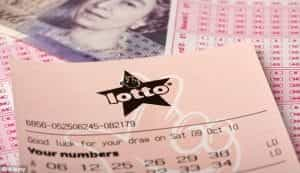Camelot to Stop Selling £10 Scratch Cards
Camelot has revealed its plans to end all sales of £10 scratch cards in the UK. The announcement comes in response to new evidence that shows that these scratch cards could worsen gambling addictions. Camelot is keen to promote responsible play in its National Lottery games.
Camelot’s plan to lift £10 scratch cards from shelves is a move that is designed to protect players.
“At Camelot, our strategy is to encourage lots of people to play National Lottery games but to individually spend relatively small amounts. So even though we’re the sixth largest lottery in the world in terms of sales, we’re still ranked just 66th (out of 180 lotteries) for spend per person – according to La Fleur’s 2019 World Lottery Almanac.”
Players who have recently bought £10 scratch cards need not worry. Tickets will still be honored for another 180 days, allowing plenty of time for players to claim their prizes. However, retailers have already been told to remove all £10 scratch cards from their shelves.
The UK Gambling Commission issued Camelot with advice on the £10 scratch cards, stating that new evidence showed that “the association of problem gambling with the £10 scratchcard was such that it was not consistent with it being a legitimate leisure activity”. As a result, Camelot agreed to withdraw £10 scratch cards in order to protect players.
From now until January 2023, only £1, £2, £3 and £5 scratch cards can be sold by the National Lottery. That is when the current license period will end, so it is possible that £10 scratch cards could come back. That does seem unlikely, considering that evidence connects these scratch cards with problem gamblers.
The Gambling Commission did acknowledge that the loss in ticket sales could have negative results for the National Lottery, which provides roughly £30 million each week to National Lottery Good Causes. So far, the National Lottery has raised more than £40 billion for charitable projects. In its statement, the Gambling Commission said “Whilst there is likely to be some negative impact on good causes, the Commission is satisfied that this decision reflects the primacy of our first two duties and was necessary and proportionate. It indicates that although the National Lottery does a lot of good in its charitable endeavors, the primary concern in this case is to protect players.
Unfortunate Winners

Camelot, the operator behind the National Lottery, believes that “prevention is better than cure”. ?www.thisismoney.co.uk
This is not the first time that £10 scratch cards have made the news in the UK. Earlier this year a big win on a £10 scratch card made headlines when Camelot refused to pay out the prize money. Jon-Ross Watson and friend Mark Goodram won £4 million on a £10 scratch card they bought during a day out in London in Easter. When they realized their good fortune, the pair went out on a spending spree. However, Camelot has refused to pay out for the win, as neither of the men have bank accounts. They were unable to explain whose card was used to buy the winning ticket, claiming only that it belonged to someone called John.
With no further details, Camelot could not confirm that the ticket was theirs, or that they had used their own money to purchase it. It has been revealed that both men are convicted criminals and Camelot has undertaken a thorough investigation into the ticket. Mr Watson spoke to The Sun about the incident, “We have a winning ticket, where’s our cash? We’ll go to the police to report Camelot. They’re being unscrupulous. I know my rights.”
Following the lavish spending spree, Watson unfortunately lost his home. Speaking to The Bolton News about the event, Watson said “In a way, it has ruined my life”. According to Camelot’s new guidelines, £10 tickets like the one that Watson and Goodram claim to have won £4 million on will no longer be on sale in the UK.
 Online Casinos UK
Online Casinos UK



